Lemons are very tasty and healthy fruit. They have a specific acidic taste, and the aroma and scent are refreshing and pleasant. We can have lemon juice or use it for taste in cocktails, or even eat it!
Now, because this is a fruit, and guinea pigs are vegetarians, you would assume that they can eat a lemon, right? Let’s find out!
Can guinea pigs eat lemons? Guinea pigs can eat lemons, but in strict moderation because it contains some sugar, calcium, and phosphorus. Also, it has a very acidic taste that could be unpleasant for the stomach of guinea pigs. They don’t digest sugars or acidic fruits very well, so their tummy might get upset. However, if given in moderation and occasionally, lemon is fine for guinea pigs.
So, we found out that guinea pigs can eat lemons in moderation. Even fruits and veggies that are healthy and natural need precaution, as with anything consumed.
Sometimes too much of a good thing is not so good, and this goes for every food. Before we start giving lemon chunks to our guinea pigs, let’s see all the good and the bad things about this fruit.
Table of Content
Are Lemons Good for Guinea Pigs? | Health Benefits
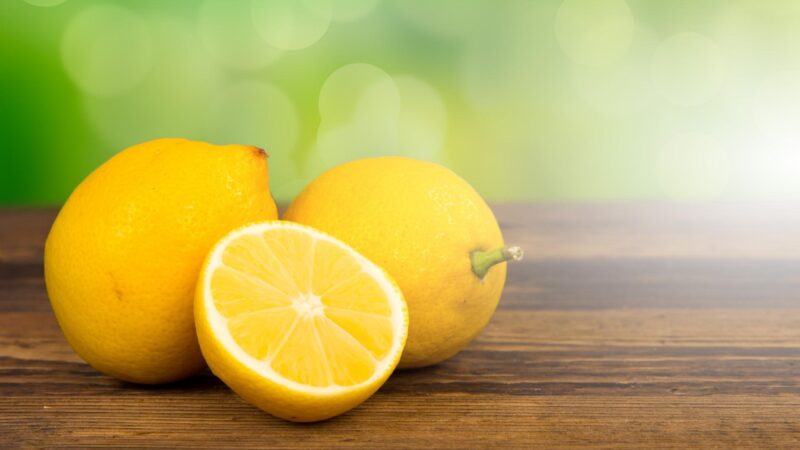
- Healthy Weight – The lemon is not very caloric, so this fruit won’t make your cavy chubby. Also, the guinea pig couldn’t eat a whole lemon fruit even if it wants to because of the strong acidity.
- Healthy Cardiovascular System – Lemon is low in fat, but also it has no cholesterol. With low fat and zero cholesterol, the blood vessels will be unclogged and this will allow the heart to work properly and easy. Cholesterol is one of the things that lead to strokes, hypertension or heart attacks.
- Prevention From Scurvy – If there is one thing lemon has a lot of, it is the vitamin C. If you need lots of vitamin C, just reach for some lemons. Guinea pigs really need lots of this vitamin because without it, they get the disease scurvy. It manifests with internal bleeding, swelling in joints, rough fur, loss of appetite and fatigue.
- Good Digestion – In lemon, there are fibers. Per 100 g, there is 4.7 g of fiber. This is good for the gut health and activity, but it also needs to be in moderation. Too much fibers may cause loose stool.
- Energy – With the carbs and proteins, the guinea pig may feel some energy and warmth. The amount is not too much, but is definitely enough for a fruit served in moderation.
- Antioxidant Protection – Lemon has vitamin A which is a great antioxidant. It keeps all cells safe from free radical damage. The free radicals cause premature aging and more diseases.
- Healthy on the Inside and Outside – With the B6 vitamin and vitamin A, the guinea pig will be healthy overall with good immunity. The B6 vitamin makes skin healthier, liver, blood vessels, anemia is cured, eyesight is improved and aches are relieved. The vitamin A also helps for formation of bones and teeth, and for soft tissues as well.
Nutrition Facts of Lemons
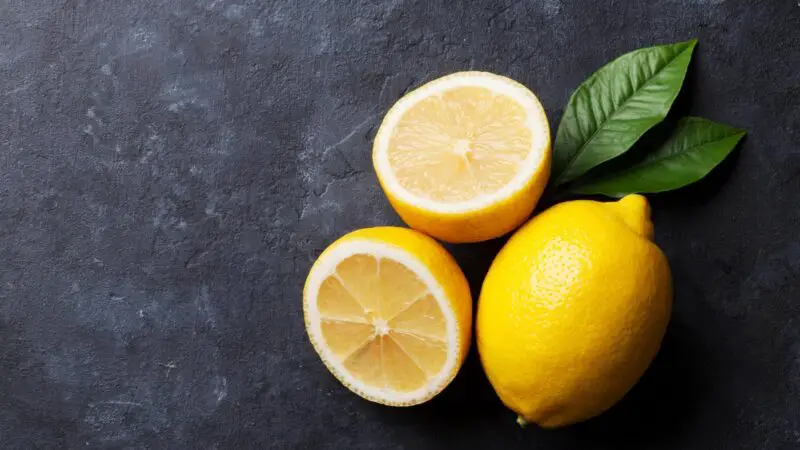
Per 100 g of lemon fruit:
- Low in calories – 20 calories. This amount is not much, and this means the lemon is not a fattening fruit. No worries if you think your guinea pig will get chubby from lemons!
- Low in fat – 0.3 g. This amount is amazing because fat is known to be damaging the blood vessels, and it also leads to obesity. The blood vessels will be unclogged with less fats, and the healthy weight of the cavy will not be changed.
- Vitamin C – 77 mg. With this amount of vitamin C, everyone will instantly get an amazing vitamin-boost-bomb! The guinea pigs need this vitamin to keep their overall health and avoid the scurvy.
- Vitamin A – 1%. Vitamin A is important for antioxidant protection. It prevents most diseases, and helps in the formation of soft tissues.
- Vitamin B6 – 5%. The B6 vitamin has a ton of beneficial functions. It removes stress, cleanses the internal organs, improves the look of the skin and hair, soothes pains and aches, among other things.
- Fibers – 4.7 g. This is a good amount of fibers for a fruit. Everyone needs fibers. They improve the digestion and bowel movements, and keep the stomach and intestines active.
- Carbs and proteins – 10.7 g carbs and 1.2 g protein. These amounts are quite good for fruit and are the main energy sources needed on a daily basis.
Are Lemons Bad for Guinea Pigs? | Possible Risks

- Urinary problems – Because lemons have some calcium and phosphorus, this increases the risk of urinary problems. When calcium deposits as an excess mineral in the urinary tract of guinea pigs, it can make bladder or kidney stones. But, other complications are expected too; urinary infections or blood in the urine. So, any food that has calcium must be served in moderation.
- Stomach sensitivity – The lemon has fibers and sugars. The digestive system of guinea pigs is not designed for digesting too many fibers. This makes them bloated, gassy and with loose stool. Also, they can’t digest sugars. This makes discomfort in the stomach, pains during digestion and overgrowth of bad bacteria in the stomach.
More Information About Guinea Pig and Lemon
How Much Lemon for the Guinea Pig? How Often?
Since the lemon is very acidic, the guinea pigs can’t overeat lemons. One small slice or chunk from the lemon should be enough for a bit of lemon refreshment.
Because of the sugar and great acidity in the lemon, avoid it for daily feedings and give this to the guinea pig every few days.
Can Guinea Pigs Drink Lemonade?
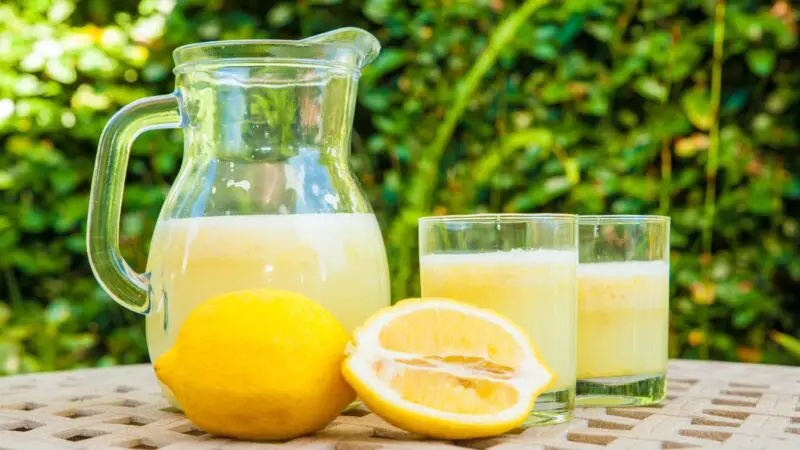
Guinea pigs should not drink lemonade. The digestive system of guinea pigs might be harmed by the high acid level. If you continued to feed it to your guinea pigs, the high sugar level might cause them to gain weight. You should just feed them water continuously. For your cavies, it’s the healthiest choice.
Can Guinea Pigs Drink Lemon Juice?
Giving lemon juice to guinea pigs is not recommended. They can’t manage it because of their weak stomachs. Your guinea pigs’ main source of liquid intake should be fresh, clean water. Water is ought to be given indefinitely each day.
Can Guinea Pigs Eat Lemon Peel?
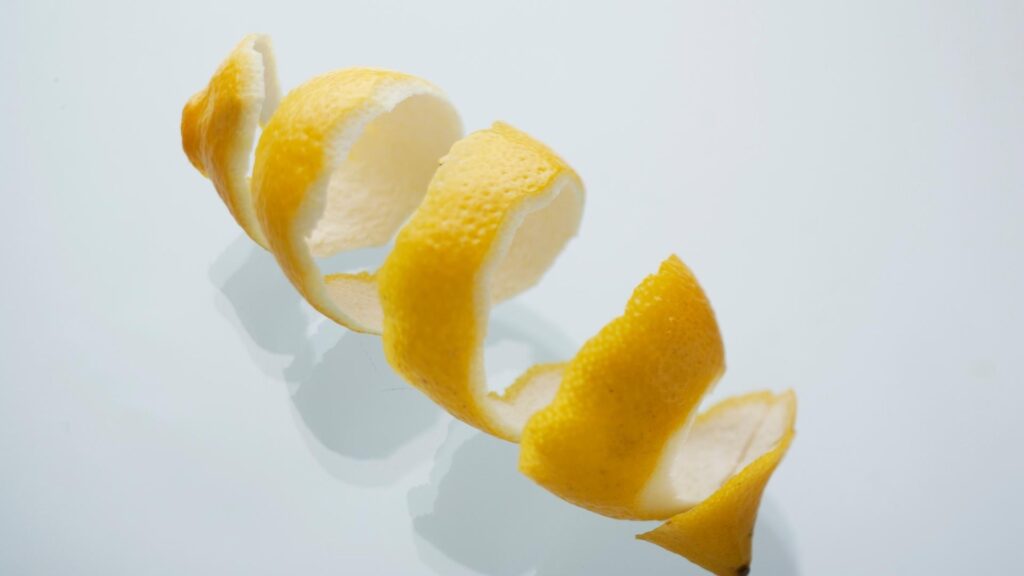
Make sure you don’t give lemon peel to your guinea pigs more frequently than once a month. The peel is still acidic even if it doesn’t contain quite as much acid as the fruit’s flesh. Additionally, we would not want to offer your pets anything that could upset their stomachs.
Can Guinea Pigs Eat Lemon Leaves?
Although guinea pigs can consume lemon leaves, it is nevertheless advised to avoid it. Although they are not hazardous to them, eating too many lemon leaves can make them feel bloated and have gas.
Can Guinea Pigs Eat Lemon Balm?
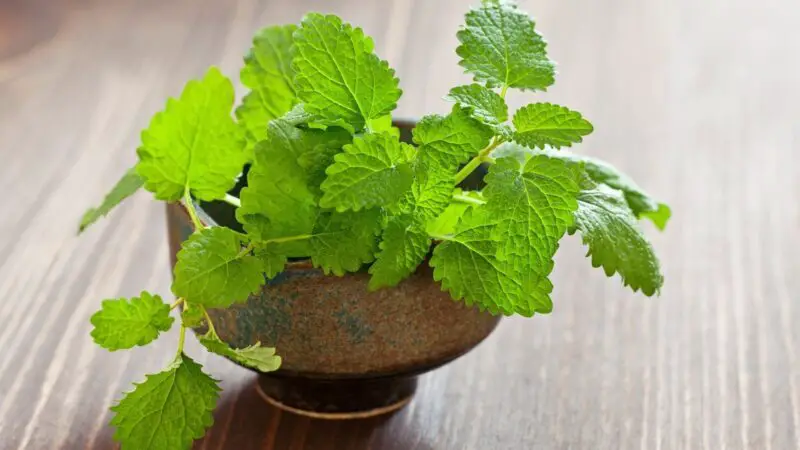
Lemon balm can be eaten by guinea pigs. They are quite advantageous to them because it contains antioxidants, vitamins, and minerals.
Additionally, lemon balm contains no fat or cholesterol, so it’s a great treat for them. Their immune system and digestion can all be strengthened with a moderate consumption of it.
If Guinea Pigs Can’t Get Enough Vitamin C From Lemons, What Other Fruits Can They Eat?
You can give some of these Vitamin C-rich fruits to your guinea pigs:
- Apple
- Apricot
- Bananas
- Blueberries
- Cherries
- Cranberries
- Melon
- Orange
- Pear
- Strawberries
Quick Facts on Lemons
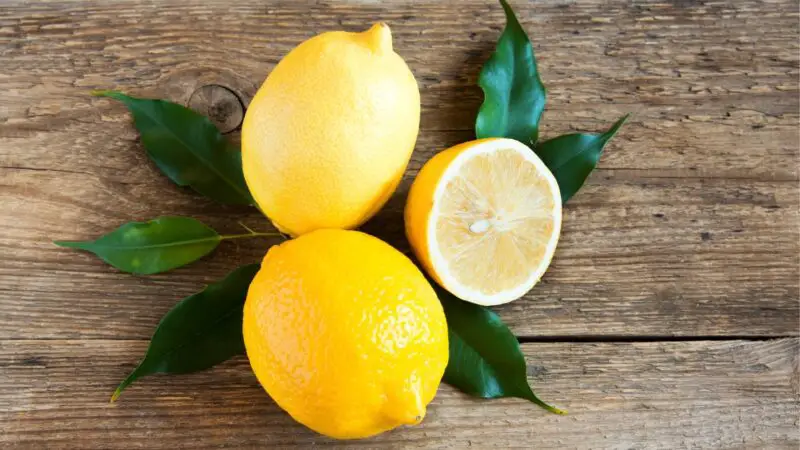
- The lemon is a hybrid fruit from citron and orange.
- Some historians believe lemons grew even in the 1st century A.D.
- The rind and pulp of lemon is used for cooking. It gives more aroma to the meals.
- The pH of lemon is 2.2, hence the acidic taste.
- It is believed that lemon originates from Northern Burma or China, and also from regions like Northeast India and areas nearby.
- The first cultivation of lemons in Europe started in the 15th century in Genoa, Italy.
- Christopher Columbus introduced lemon to the Americas, back in 1493, when he brought seeds of lemon to Hispaniola during his voyages.
We have also made a full list of foods that guinea pigs can and can’t eat (150+ Types of Foods). Be sure to also check our recommended products page for everything you will ever need to assure a happy life for your guinea pigs. Hope this information was helpful and you have found the answer you were looking for.
List of Sources
Vitamin C Requirements of the Guinea-Pig
Nutrient Requirements of Laboratory Animals: Fourth Revised Edition
The Effects of Diet on Anatomy, Physiology and Health in the Guinea Pig
